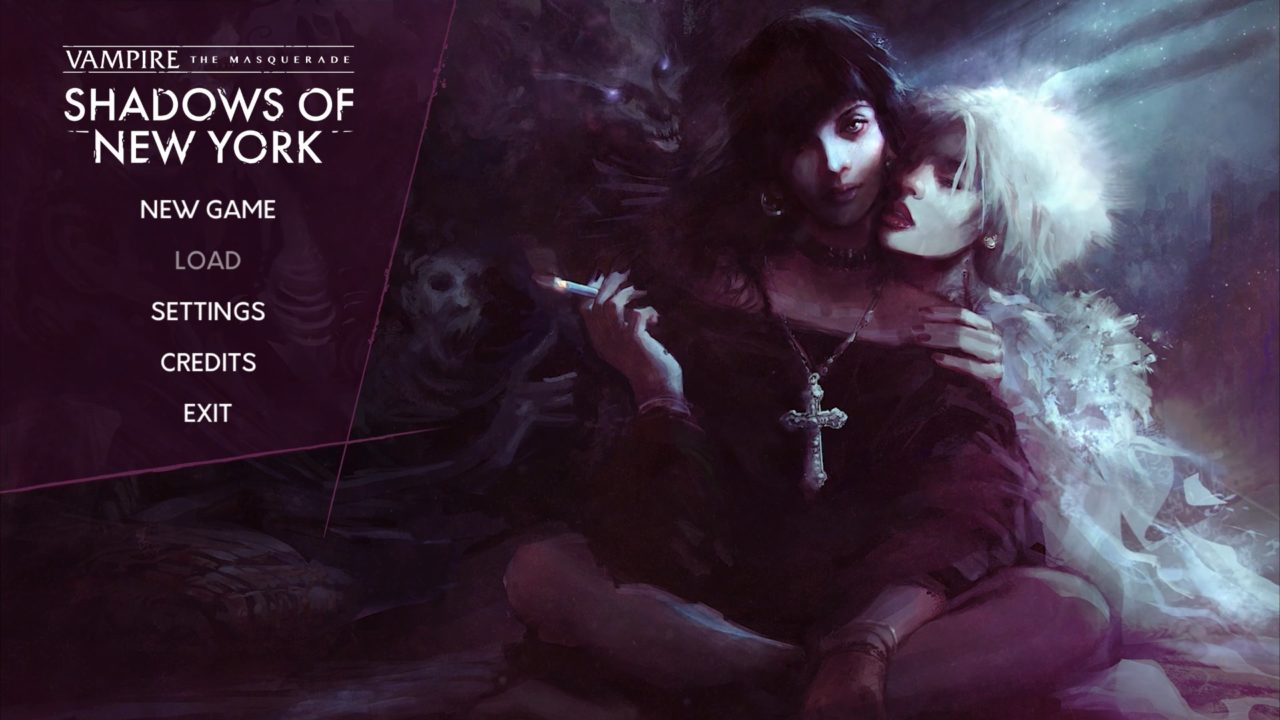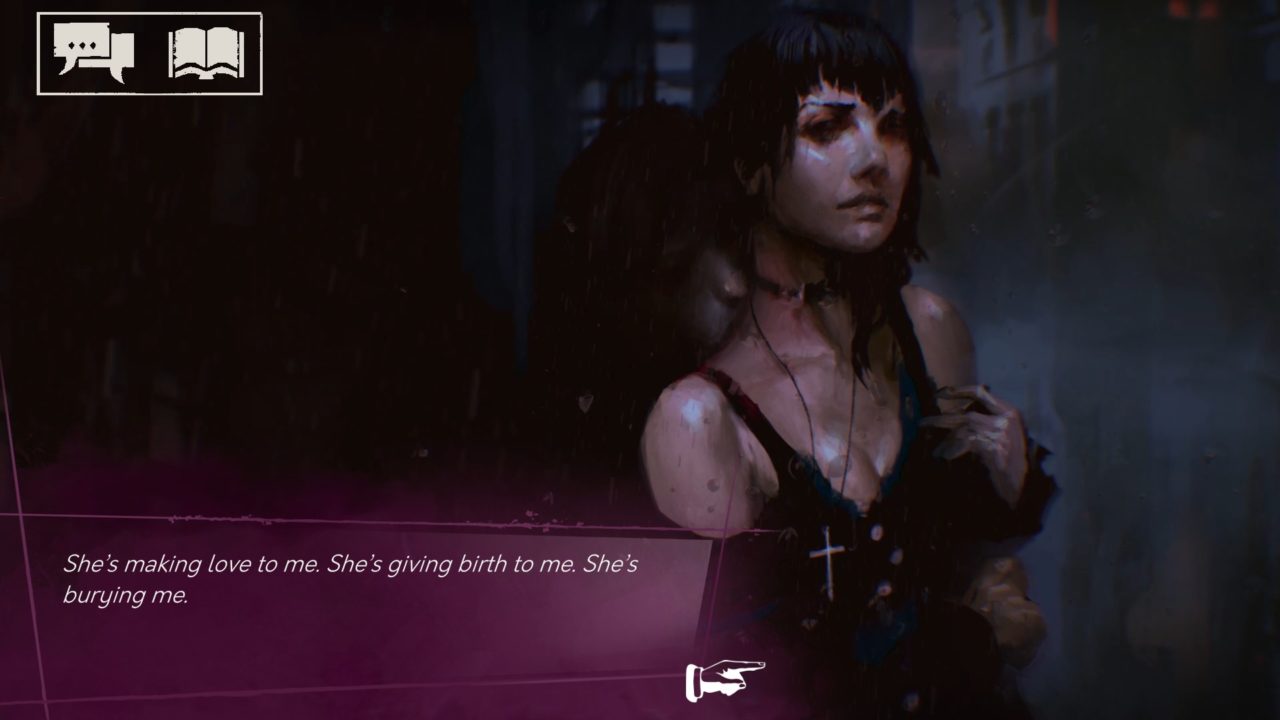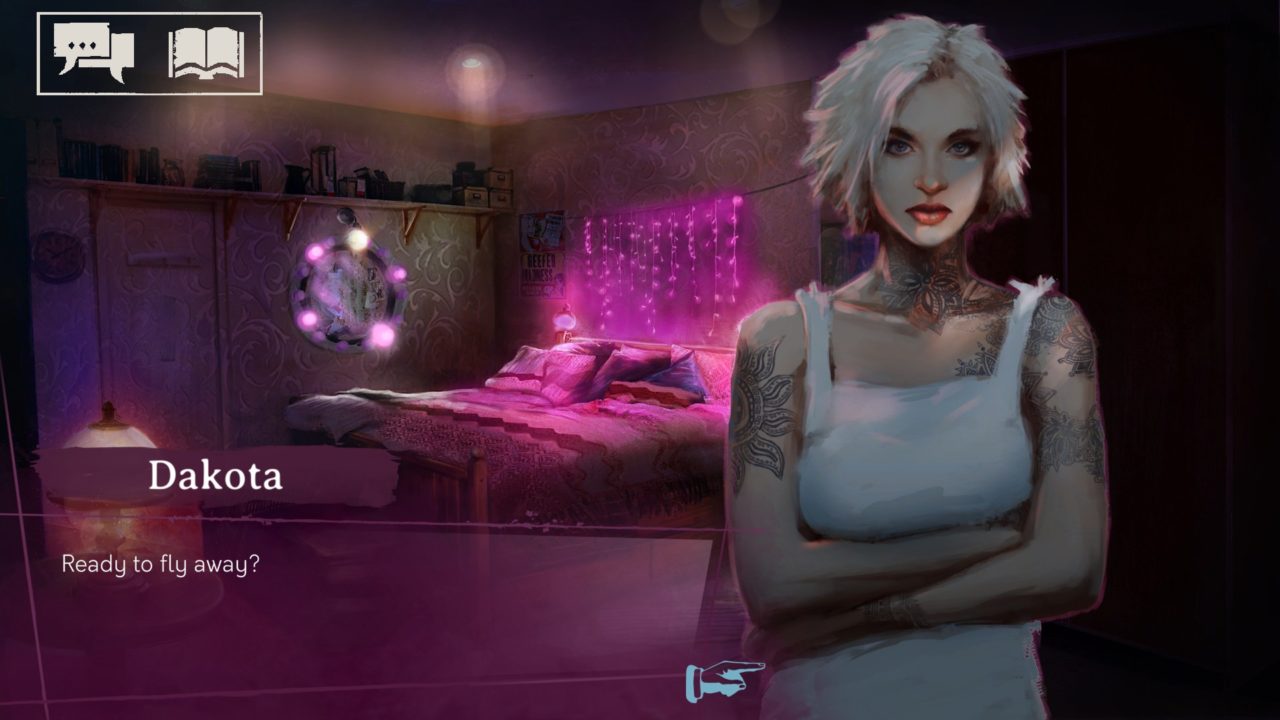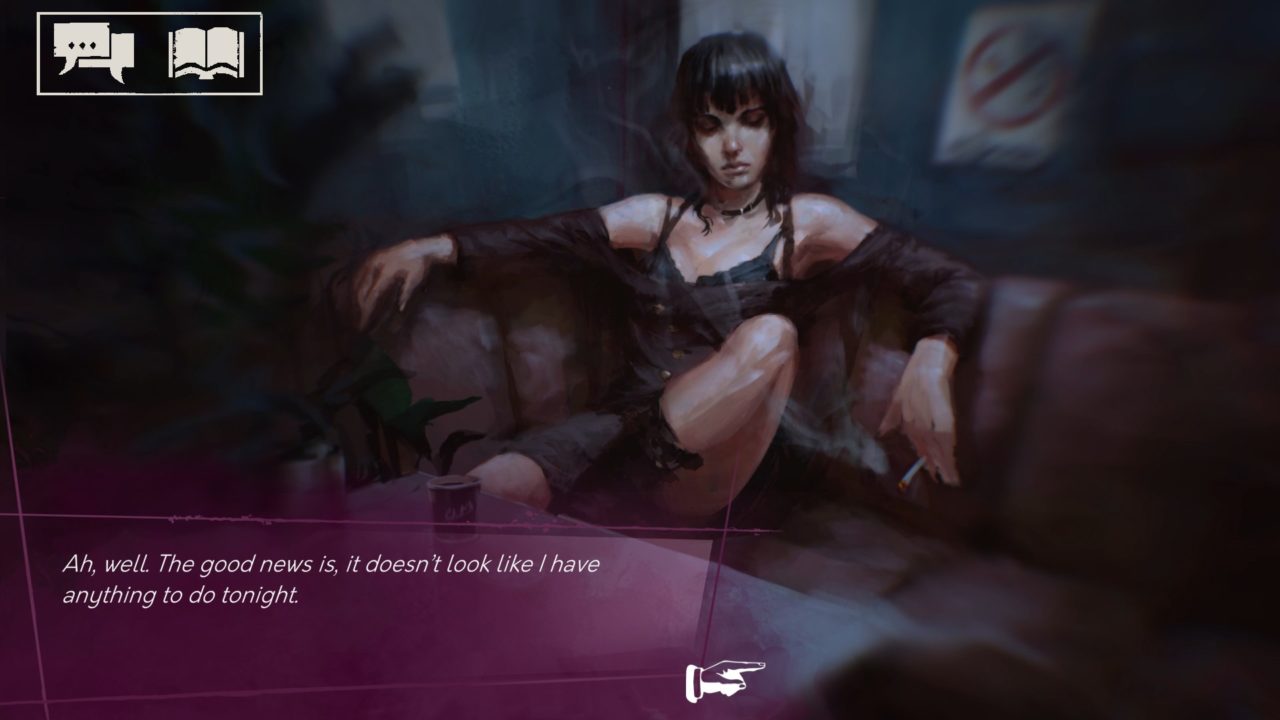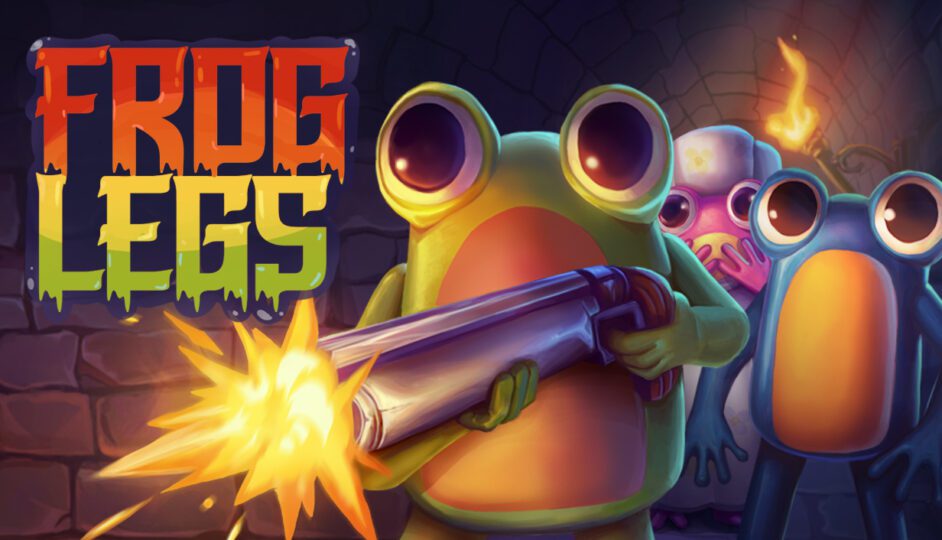Vampire: The Masquerade – Shadows of New York is an elegantly written game set in the Vampire: The Masquerade universe. It takes place several months after the previous game, Coteries of New York. Julia Sowinski is a former investigative reporter who is turned into a vampire and gets involved in a high profile murder case amongst the vampire elite. As a visual novel, you can choose between various scenarios and ultimately influence the final ending.
Vampire: The Masquerade is a title that within the gaming community, either tabletop or video game, needs no introduction. A series defined by the urban fantasy gothic setting, the politics of each vampire clan changing the world around the unsuspecting player, and the feeling that there’s always some information that they’re not aware of. With Masquerade 2 announced for 2021, it’s not surprising to see smaller titles take advantage of the interest, first with Coteries of New York, Night Road and the subject of this review Vampire: The Masquerade – Shadows of New York.
A pseudo-sequel to 2019’s Coteries, while there are callbacks to the previous game, Shadows is marketed as a stand-alone adventure. At worst, there will be a few moments scattered across the games the main storyline where you can tell that a character is from the previous game by the amount of reverence with which the other characters speak of them. Yet, it isn’t enough to take you out of the experience for anyone worried about being confused since they were playing the second visual novel rather than the first. The game is only 5 hours long, yet it offers a little taste of the Masquerade universe, and it’s quite a delectable one that I highly recommend.
The striking thing about Shadows of New York is that the art style fits the tone of the game perfectly. Dark colors are prevalent throughout, and the moving shadows cast upon the otherwise still images create a unique sense of foreboding. The character designs are all reflective of each personality, from the more elegant characters in the Camarilla, to the casual outfit that the main character wears. The art style captures the essence of a sprawling metropolis like New York with a seedy underbelly. The same goes for the music and sound design, which encapsulates each area you’re visiting and the mood of the game. I will say that while some of the music looping in the background as you read can be grating, it fits the aesthetic of the game and its universe. In Shadows of New York, the music changes where the royalty lives in lavish luxury while those at the bottom of the ladder live in squalor.
Near the bottom of the proverbial food chain in Shadows is our dear narcissistic misanthrope of a heroine, Julia, who starts the game as a freelance journalist working for a paper called Lodestar. Throughout the prologue of your vampire adventure, Julia gets fired and the transition from her storming out of her former place of work and becoming a vampire is written in such a way that it comes off as bizarre. We go from Julia listening to her phone messages, to her hearing about her father’s cancer, to her allegedly shooting someone and then she’s turned into a vampire. If this sounds like a black comedy that you’d think would be explained and developed further as the story goes on, you’d be wrong. While certain points do get touched upon, everything happens one right after the other in a slap-dash and haphazard way. Her firing from the Lodestar was handled well enough, but misery upon misery was piled on top of her afterwards that it borders soap opera style Melodrama. None of these events are given enough time to set in with the player, which makes it come off as rushed. It’s like the player is expected to go with it because they want to get to the cool stuff with the vampires rather than how this woman’s life fell apart. The rest of the game doesn’t have this pacing problem, but it stood out enough at the beginning that it begged to be mentioned.
With her human job as a journalist gone, Julia is given a new job at the behest of The Camarilla; to investigate a murder that is trenched in politics, scandal, lies, violence and everything you’d expect from vampires that have lived over a hundred or so years. Each night, Julia can pick what she wants to do, typically from three different choices, but she’s only able to do two of them in the time that she has. This gives the player options as to how they want to see the world and how to mould Julia’s character further. These encounters highlight different aspects of her personality, and the choices that are made can hint at plot developments later on. There are some events that you can choose from that do change Julia’s inner monologues. Unless it’s connected to the main story, don’t expect some of these side events ever to be mentioned by the main suspects in Julia’s investigation. It’s on the linear side, but that’s not a bad thing because the game’s world itself has so many moving parts that if you tried to take every single event, Julia stumbles across into account, it’d make the story more bloated, which is something it teeters on already. While Vampire: The Masquerade as a franchise has never been known for writing that gets to the point and at times, Shadows falls into a habit of meandering about Julia’s inner thoughts for a paragraph too long. It’s not that we don’t want to know what’s going on in Julia’s head, but when there are other things going on around her, it’s much harder to want to hear what she’s thinking rather than mashing the forward button.
That said, the writing in Shadows of New York is overall a delight to read through, giving the players more than enough to understand Julia as a character and her motivations. Her drive and her development are entirely driven by how the player chooses to react to key situations. There’s what is called a traits system in place where, depending on certain choices, Julia develops a new trait, traits that members of her new vampire clan have. It adds more weight to the decisions that are made and provide a significant change in how Julia’s story eventually unfolds. Especially with her girlfriend, Dakota.
Julia ends up in Clan Lasombra and, thanks to her creator’s behest, she gets special privileges like having a human companion, Dakota. The interactions between Julia and Dakota are where the game’s writing is at its strongest. You’re able to see a clearer reflection of Julia as a character through her discussions with Dakota. Each scene is intimate, and it provides a reprieve from the dark misery of the world around Julia. However, depending on the choices you make, it drastically changes how the narrative between these two goes. There are consequences for Julia losing her humanity, and part of that reflects in how she sees Dakota and vice versa. Though we don’t see Dakota’s thoughts of all the characters in the game that aren’t Julia, she has some of the most significant development, though it’s more subtle than in the other characters.
There’s clear theming throughout Shadows when it comes to Julia’s growth. There are aspects of her character that are accentuated thanks to her new vampirism, and each action she makes is punctuated by her dialogue. Throughout the story the themes around power and how it corrupts are well-pronounced and, with each passing interaction with a high ranking character, the story makes it abundantly clear that there are no good guys here, which includes Julia. Every character being morally grey may turn some people off, yet with the message this game is sending, it’s less about good vs evil and more about the effects of power on someone who has none, making a compelling narrative to read through for the 5-hour playtime.
If anyone were to tell me that I was going to be playing a visual novel based on the Vampire: The Masquerade universe back when I played World of Darkness every Sunday with my friends in high school, I’d say they were crazy. Yet, here I am, excited to see what this world has to offer me next. Vampire: The Masquerade – Shadows of New York is worth playing for anyone who is a fan of the franchise and new players who want to journey into this world of darkness.


